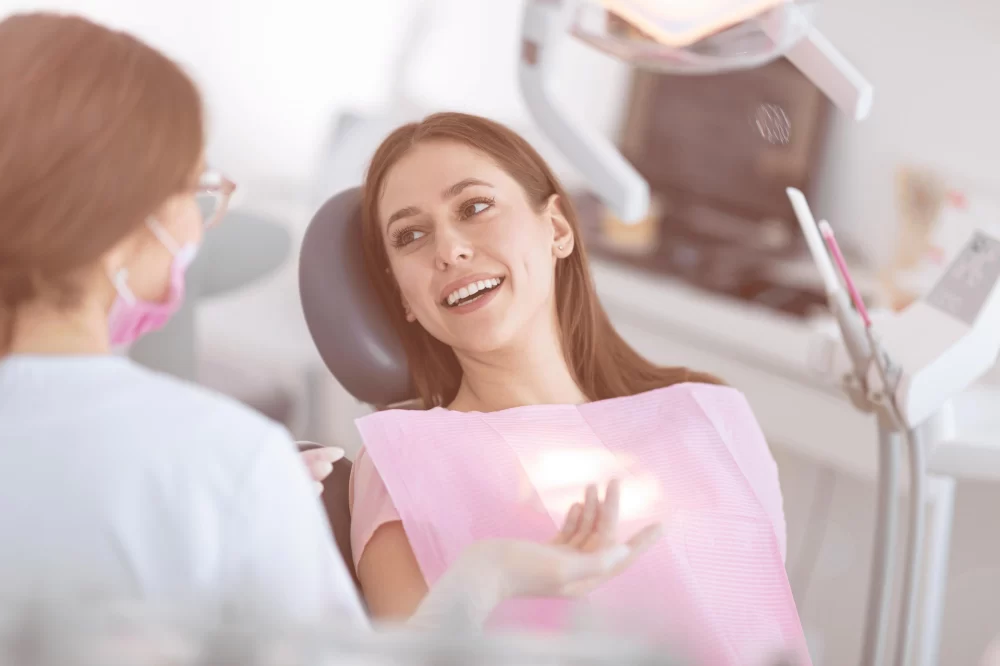
- how-oral-health-changes-after-50
- risks-of-skipping-dental-checkups-in-midlife
- benefits-of-regular-dental-visits-after-50
- real-case-postponed-checkups-and-late-diagnosis
- dental-prevention-vs-treatment-costs
- building-a-senior-friendly-dental-routine
1. How Oral Health Changes After 50
Crossing the 50-year mark often brings a shift in overall health, and oral wellness is no exception. Saliva production slows down, gums become more sensitive, and enamel wears thinner with age. Additionally, medications prescribed for conditions like hypertension or arthritis often have oral side effects—most commonly dry mouth and increased risk of cavities. These age-related changes make the importance of maintaining regular dental checkups after 50 all the more critical.
1.1 The Silent Role of Hormones and Immunity
Hormonal changes during menopause or andropause can also affect gum health. Declining estrogen, for example, has been linked to increased bone loss—including in the jawbone. Furthermore, the immune system becomes less efficient with age, making infections like gingivitis or periodontitis more difficult to fight off without professional support.
2. The Hidden Risks of Skipping Dental Checkups in Midlife
Neglecting regular dental appointments after 50 may seem harmless—especially if you’re not in pain—but it can lead to severe complications down the line. Small issues like minor gum inflammation or a cracked filling can escalate into major infections, root damage, or even tooth loss when left untreated.
2.1 Oral Cancer Risk Increases with Age
Routine dental visits include screenings for oral cancer, a disease that becomes significantly more common after age 50. Dentists are trained to spot subtle changes in tissue, often catching problems before they become dangerous. Early diagnosis can make all the difference in treatment outcomes.
3. Benefits of Regular Dental Visits After 50
Consistent checkups provide far more than just clean teeth. They serve as a cornerstone for preserving your quality of life. A healthy mouth means easier eating, clearer speech, and fewer systemic health risks. Studies show that good oral health is linked to lower rates of heart disease, diabetes complications, and cognitive decline.
3.1 Professional Cleanings Reduce Hidden Inflammation
Many people over 50 develop mild to moderate gum disease without realizing it. Professional dental cleanings remove plaque and tartar in hard-to-reach areas, stopping gum inflammation before it causes permanent damage. These cleanings also help reduce bad breath, a common concern among older adults.
4. Real Case: Postponed Checkups, Painful Results
George, 62, was healthy and felt fine—so he skipped his dental appointments for over three years. Eventually, he began experiencing sensitivity and occasional bleeding gums. By the time he saw his dentist, he had moderate periodontitis and required deep cleaning and bone grafting. "If I’d just gone in once a year," he later admitted, "I probably would have avoided thousands in costs and a lot of discomfort." His experience is far from rare—and it underlines the need for routine care, even when things seem fine.
5. Prevention Is Always Cheaper: The Financial Side of Dental Care After 50
Many adults assume skipping dental appointments saves money—but that’s a short-term view. Treating advanced dental issues, such as implants or full-mouth rehabilitation, can cost thousands. Preventive care, on the other hand, is often covered by insurance or offered affordably through senior discount programs. Two visits a year could save you from needing complex treatments that not only cost more but also require longer recovery times.
5.1 Insurance and Senior-Friendly Dental Plans
After retirement, many people lose employer-sponsored dental coverage. Exploring senior dental plans or community dental clinics can help bridge that gap. At Dentistry Toothtruth, we can help you compare options and connect with services that meet your health and budget needs.
6. Building a Senior-Friendly Dental Routine That Works
It’s not just about visiting the dentist—daily habits play a huge role in keeping your smile strong past 50. Consider switching to an electric toothbrush if dexterity becomes an issue, and don’t underestimate the value of flossing, even if it requires a floss pick or water flosser. Use fluoride toothpaste and mouthwash as recommended by your dental provider.
6.1 Staying Motivated for Long-Term Care
Incorporate oral care into your larger self-care routine. Just like morning stretches or evening skincare, brushing and flossing should be non-negotiable. Setting calendar reminders or making it part of your daily routine with a partner can help you stay on track.
6.2 When in Doubt, Ask a Professional
If you’re ever unsure whether your oral routine is sufficient, ask your dentist for feedback. Whether it’s sensitivity, bleeding, or simply curiosity, no question is too small when it comes to protecting your health. Visit Dentistry Toothtruth to find expert-reviewed dental providers near you and ensure your oral health journey after 50 is smooth, affordable, and effective.







 Midwest Dental Implantology Dr. Tricia Crosby, Dr. Martin Kolinski, Dr. William Trahan4.0 (49 review)
Midwest Dental Implantology Dr. Tricia Crosby, Dr. Martin Kolinski, Dr. William Trahan4.0 (49 review) Westchester Dental Design: Implant, Cosmetic, & Family Dentistry4.0 (45 review)
Westchester Dental Design: Implant, Cosmetic, & Family Dentistry4.0 (45 review) Western Dental & Orthodontics3.0 (1196 review)
Western Dental & Orthodontics3.0 (1196 review) Newtown Orthodontics4.0 (117 review)
Newtown Orthodontics4.0 (117 review) New Falls Dental Group4.0 (1089 review)
New Falls Dental Group4.0 (1089 review) Great River Orthodontics4.0 (127 review)
Great River Orthodontics4.0 (127 review) The Importance of Oral Health Education During Pregnancy for a Healthy Pregnancy
The Importance of Oral Health Education During Pregnancy for a Healthy Pregnancy Best Tips for Brushing Your Teeth Properly for Healthy Gums: Essential Techniques for Oral Health
Best Tips for Brushing Your Teeth Properly for Healthy Gums: Essential Techniques for Oral Health Why Skipping Dental Checkups Can Lead to Bigger Oral Health Problems
Why Skipping Dental Checkups Can Lead to Bigger Oral Health Problems Advantages of Porcelain Dental Restorations
Advantages of Porcelain Dental Restorations How Can Diabetes Cause Tooth and Gum Problems? Preventing and Managing Oral Health Issues
How Can Diabetes Cause Tooth and Gum Problems? Preventing and Managing Oral Health Issues Healthy Habits for Promoting Good Oral Health and Hygiene: Tips for a Healthy Smile
Healthy Habits for Promoting Good Oral Health and Hygiene: Tips for a Healthy Smile